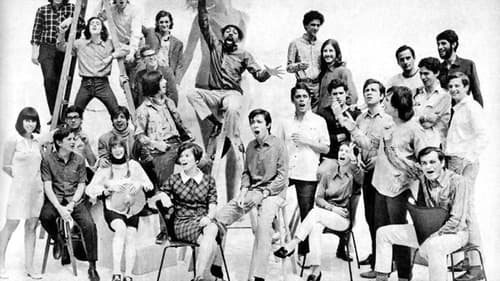
Executive Producer
If you thought TV shows in which audiences and juries judge musical acts were a relatively new phenomenon, you'd better think again. In the 1970s, such "festivals" were incredibly popular in Brazil. They were recorded before a live studio audience, and usually featured a number of elimination rounds. They also formed the springboard for the career of many a big-name star, such as Chico Buarque, Caetano Veloso, Roberto Carlos and Gilberto Gil. Appearing on such a program was no cakewalk, however: audiences could be as wild in their condemnation as in their appreciation of an artist. Extensive archive footage (including performances and behind-the-scenes interviews) from a turbulent final of the Festival of Brazilian Popular Music one evening in 1967 paints a fascinating picture, not only of the transformation of Brazilian music into real "festival" music, but also of a society starting to buck against the yoke of military rule.

Producer
Rey de los boliches, burdeles y salones de baile en Bahia, el ex burócrata Quincas Berro d’Agua es encontrado muerto en su cama. Inconformados con su muerte, sus mejores amigos “se roban” a su cuerpo y lo llevan para una última noche de parranda, regada a mucha bebida. Entre mil y un líos, Quincas “vive” una segunda y definitiva muerte, una tal cual la que el siempre soñó. Basada en la obra de Jorge Amado. (FILMAFFINITY)
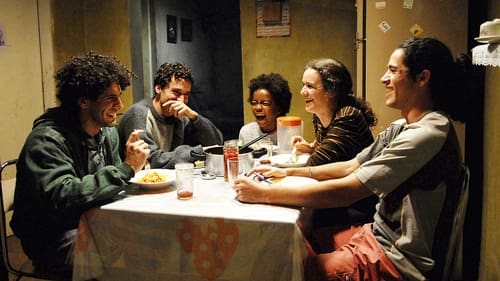
Producer
Inspirada en gran parte en hechos reales, cuenta la historia de cuatro hermanos que buscan su camino en la vida. De padres diferentes, los cuatro viven con su madre, empleada doméstica que espera otro hijo, de padre desconocido.
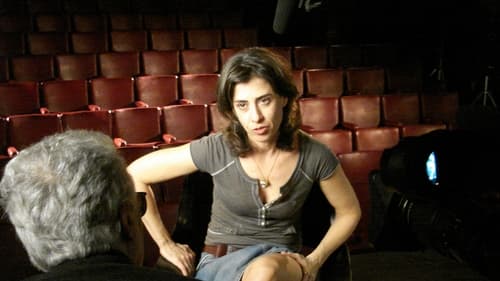
Executive Producer
Following a newspaper ad, ordinary women tell part of their life stories to director Eduardo Coutinho, which are then re-enacted by actresses, blurring the barriers between truth, fiction and interpretation.

Producer
In northern Brazil, Hermila patiently waits for her husband. However, he has abandoned her. Sexy, restless and resolute, she raffles off "a night in paradise" with herself. This beautifully-shot portrait doesn't shy away from the burdens of a young scarred woman, but it also celebrates her courage to live according to her own rules.
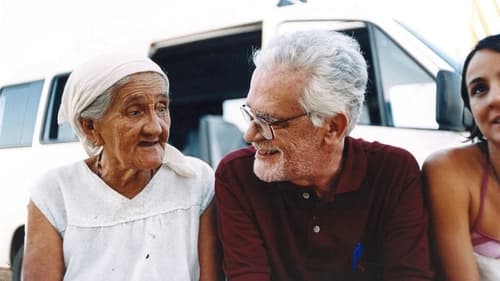
Executive Producer
A film that began from zero. Without any previous research, characters, locations or established themes, a film crew arrives at the Paraiba backlands in search of people with stories to tell. In the town of São João do Rio Peixe, they discover the Araçás Farm, a rural community where 86 families live, the majority connected by family ties. Thanks to the mediation of a young woman from Araçás, the residents – consisting mostly of elderly people – tell their life stories, marked by popular Catholicism, hierarchy, a sense of family and honor. A world on the verge of disappearing.
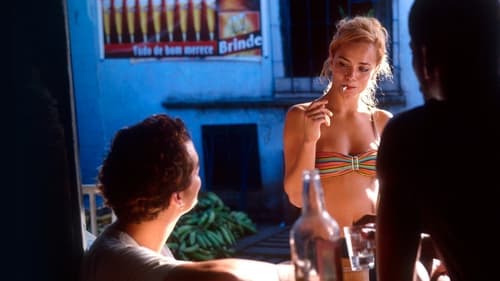
Producer
Deco y Naldinho se conocen desde que eran niños, incluso es difícil hablar del uno sin tener al otro en mente. Se ganan la vida como transportistas y aplicando pequeños golpes a bordo del Dany Boy, un barco a vapor que compraron juntos. Un día aparece Karinna, una chica que hace strip tease y que quiere conseguirse a un gringo adinerado en el carnaval de Salvador, donde el dúo la lleva. Después de descargar en Cachoeira, Deco y Naldinho van a una pelea de gallos. Naldinho apuesta el dinero que ha ganado con el transporte de la carga pero se mete en un lío y acaba siendo acuchillado. Deco lo defiende y ataca al agresor pero los dos amigos se ven obligados a huir en el barco rumbo a Salvador. Mientras Naldinho se recupera, Deco intenta conseguir dinero para ayudar a su amigo. Cuando llegan a Salvador se reencuentran con Karinna que ahora está trabajando en una discoteca. Poco a poco la atracción crece entre ellos y se les abre la posibilidad de llevar una vida de trío. (FILMAFFINITY)

Associate Producer
Shup up in dead-end lives with dreams larger than life, two inseparable friends in their thirties decide to take their fates in hand. Nevertheless, a woman a « fatale » one, gets them away from their path. And the three of them – two others will quickly join them- find themselves involved in a strange case, that of a fake painting robbery. Who said crime is not worth?

Producer
Río de Janeiro, años treinta. João dos Santos era pobre, hijo adoptivo, negro y homosexual confeso. Su ficha policial sumaba tres mil peleas y tres homicidios. Decía que no peleaba, se defendía.
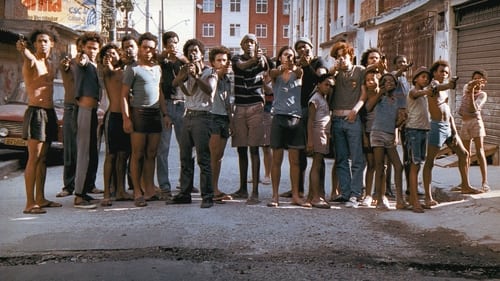
Producer
Basada en hechos reales, cuenta la historia del crecimiento del crimen organizado en los suburbios de la ciudad de Río de Janeiro, desde finales de los años sesenta hasta el comienzo de los ochenta, cuando el tráfico de drogas y la violencia impusieron su ley entre la miseria de las favelas.“Buscapé” tiene 11 años y es sólo un niño más en Cidade de Deus, un suburbio de Río de Janeiro. Tímido y delicado, observa a los niños duros de su barrio, sus robos, sus peleas, sus enfrentamientos diarios con la policía. Ya sabe lo que quiere ser si consigue sobrevivir: fotógrafo. “Dadinho”, un niño de su misma edad, se traslada al barrio. Sueña con ser el criminal más peligroso de Río de Janeiro y empieza su aprendizaje haciendo recados para los delincuentes locales. Dos vidas paralelas en Cidade de Deus.

Associate Producer
En una atmósfera brasileña, pero dominada por un soplo de la tradición clásica mediterránea, es la versión al revés del hijo pródigo. Drama trágico de la eterna lucha entre la tradición y la libertad, bajo el escudo del tiempo. (FILMAFFINITY)

Producer
Short musical film paying a tribute to samba composer Zé Ketti, one of the greatest popular artists of Brazilian music. In a jam session, in the late composer's house in Inhaúma, a neighborhood of Rio de Janeiro, a group of friends get together to play his music while a "feijoada" (typical Brazilian food with black beans)is being cooked in the kitchen. The samba-players, first-rate samba stars themselves, remember Ketti's great hits in a homage to the man who was best known as "a voz do morro" ("the hill's voice" - but hill as a metaphor for a place where poor people build their shacks in slums, in opposition to city, where middle-class people live in Rio). Among the guests, names of the traditional "samba-school" Portela and ex-partners. Also, the presence of a black hat on an empty chair, represents the composer himself, who died in 1999, after a life of many accomplishments in music, and appearance in three of Dos Santos's films: "Rio, 40 Graus", "Rio Zona Norte" and "Boca de Ouro".

Executive Producer
Brazilian music gets the royal treatment in this eclectic collection that features performances from such luminaries as Jorge Aragao, Fundo de Quintal, Alcione and Bezerra Da Silva. Songs include "Malandro"; "Vendi Meu Peixe"; "Amor A Primeira Vista"; "Do Fundo Do Nosso Quintal"; "Tendencia"; "Miudinho, Meu Bem, Miudinho"; "Pot Pourri: Poeira Da Idade/ Eu Sei Que Vou Te Amar"; "Parabens Do Brasil Pra Voce"; and more.












